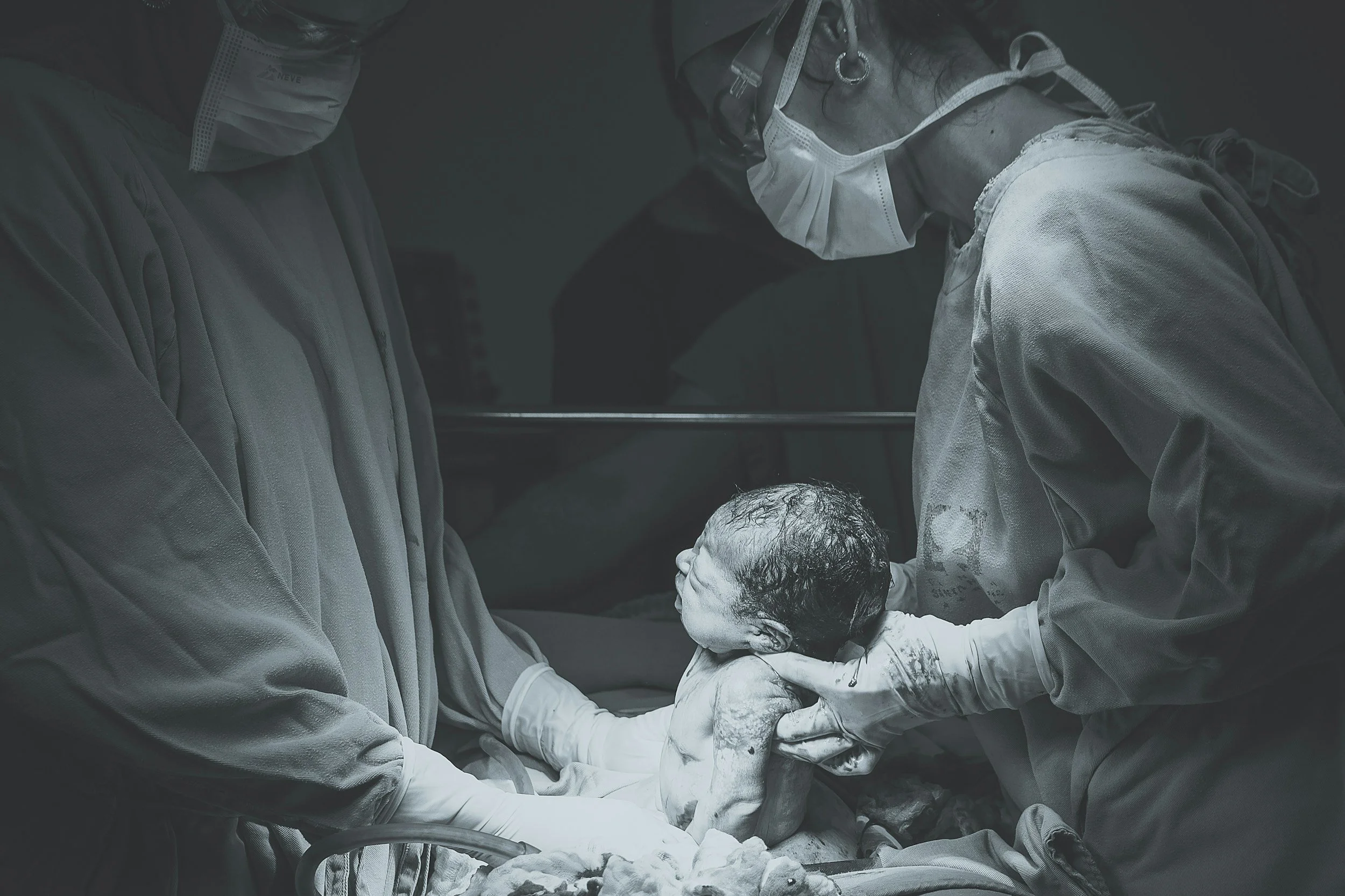Birth Trauma
*Trigger warning
One mother shares about her traumatic birth experience – “When I share the story about my son's birth I worry that people will think I am selfish or ungrateful…I gave birth to a beautiful, healthy baby boy, which is what everyone wants, but the process to get there was difficult and the labor and delivery was one medical intervention after the next.”
According to the Cleveland Clinic, “Birth trauma is any physical or emotional pain you experience before, during or after childbirth. In the U.S., up to 1 in 3 birth parents experience a traumatic birth. Trauma can happen for a variety of reasons, and everyone experiences it a little differently. Things like having a life-threatening emergency during delivery or having a long and difficult labor are examples of events that could lead to birth trauma.” However, “birth trauma is in the eye of the beholder” says Cheryl Beck, an obstetric nurse and distinguished professor that focuses on postpartum mood and anxiety disorders. Birth trauma isn’t always as obvious as one might think. It is subjective; it is how the birthing parent experienced it. One local doula recently shared that a number of her clients have been reporting distress from what appeared to be routine and “drama-free” births. It could be distress or disappointment that a birth didn’t go as planned or maybe a lack of support from a partner or medical provider. It can feel lonely and maybe even selfish, as the mother from above reports, for feeling distress and disappointment from what seemed like a “standard” birth to others.
Birth trauma happens at a higher rate for black and latina women (3 times more likely), those with preexisting trauma, anxiety, depression or other mental health diagnosis as well those lacking support. The formal diagnosis for birth trauma is Childbirth PTSD (CB-PTSD) and the criteria to meet this include: trauma specific intrusions (related to child birth) and avoidance, negative alterations in cognitions and mood, and hyperarousal/hyperactivity. However, fitting all the criteria is not necessary for seeking out support.
Meaghan Semple, LPC
Still have questions or want to schedule a consultation call? Contact me here.
Sharon Dekel, PhD, associate Professor of Psychology at Harvard Medical School, states that there is underreporting for birth trauma due to stigma, shame and guilt. In her webinar “Birth Trauma: Understanding its Origins and The Urgent Need to Do More” she discusses the importance of screening and treatment. There are a number of specific screenings providers can use, but she suggests a more subjective approach – a birth narrative (30 words or so) where the birth parent can simply share their experience and the feelings/thoughts associated with it. Allowing space for birthing persons to not fit into a box or set of criteria reduces the shame, guilt and stigma associated with reporting birth trauma. If you don’t have a provider that is willing to listen, support you, or you are concerned about sharing your experience, Fort Worth Women’s Counseling is a safe place that specializes in working with women who have CB-PTSD or any other distress, grief, anger, disappointment associated with birth or the surrounding events. You will get the support you deserve with no judgment involved.
Interested in EMDR for Birth Trauma? Check out the blog post: EMDR for Perinatal Concerns.



